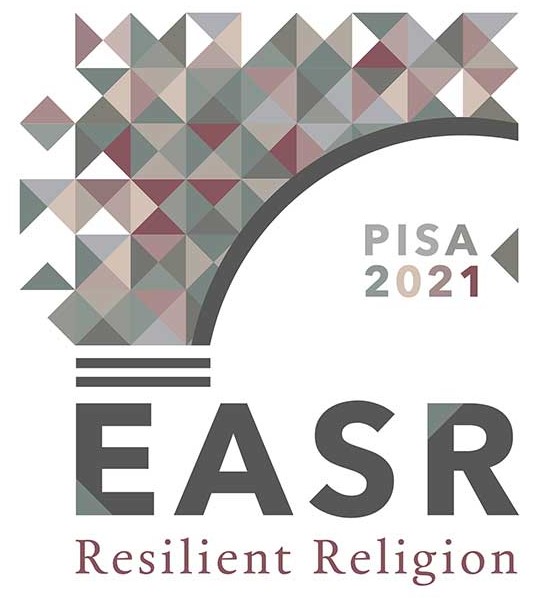- Milano
- Dipartimento di Scienze religiose
- Notizie
- Resilient Religion
Resilient Religion
18th Annual Conference of the European Association for the Study of Religions
IAHR Regional Conference
Pisa, 30 agosto – 3 settembre 2021
Resilience can be considered as the ability to counteract or absorb a process of transformation. It is also characterized by a capacity to endure changes without having to adapt permanently, an ability to find what best suits new environmental conditions; and an awareness of how to cope with a crisis.
In this sense, religion – whether in its institutionalized forms or just as a simple belief in any relationship with a super-human agency – represents a powerful tool for reacting to difficult situations and establishing a relationship with the sacred thanks to the interaction between spirituality, mindfulness, empathy and the emotions.
Workshop session:
'Pagans' and Gnostics in Late Antiquity. Strategies of 'Doctrinal Resilience' (ONLINE)
Organiser:
Maria Vittoria Cerutti, An Introduction to the Subject and a Case Study
Participants:
Giuliano Chiapparini, Gnostic Strategies of Resilience: Valentinians and Sethians facing the so-called Great-Church (2nd-4th century).
The workshop session aims at focusing on forms of ‘doctrinal resilience’, that is argumentative strategies within literary sources of religious and philosophical-religious interest, developed among the ‘last pagans’ and Gnostics in order to resist the spread of the ‘religious otherness’ and its impact.
More specifically, the contributions intend to investigate resilient strategies displayed in Late Antiquity, on the one hand by hellenismòs and on the other hand by Gnosticism, in front of the crisis represented for them - respectively - by the spread of Christianity and the development of the so-called Great Church.
Therefore, a first research area aims at exploring how literary sources of religious-philosophical relevance not only criticize, but also – at the same time – use, adapt and resemantize doctrinal elements of Christianity and integrate them in their own traditional religious heritage, in order to resist the pervasiveness of the vera religio – or better the vera philosophia - and survive it. The core of the research is the investigation of literary sources that unfold a sort of chrêsis, which goes in a different direction and pursues different purposes than the classical culture’s chrêsis (chrêsis orthé or usus iustus) as theorized and practiced by the first Christian authors [Christian Gnilka, Chrêsis, il concetto di retto uso. Il metodo dei Padri della Chiesa nella ricezione della cultura antica, tr. it., Morcelliana, Brescia 2020; Markus Mülke Hrsg., Chrésima. Exemplarische Studien zur frühchristlichen Chrêsis (Untersuchungen zur antiken Literatur und Geschichte, Band 138), De Gruyter, Berlin 2019; A.M.Mazzanti ed., Un metodo per il dialogo fra le culture. La chrêsis patristica (Supplementi Adamantius IX), Morcelliana, Brescia 2019].
In this perspective, we are not strictly dealing with an anti-Christian thought, but rather a post-Christian thought, that – for these reasons – may offer some aspects of analogy with the contemporary post-Christian Western world.
A second research area aims at focusing on Gnostic sources in order to investigate their way of using (chrêsis) Christian elements for resilient purposes. More specifically, the contribution in this area intends to distinguish and clarify two forms of resilience: the former, older and – we can say – intra ecclesiam, represented in particular by some Valentinian sources and the latter – more recent and extra ecclesiam – expressed in particular by the so-called secondary Christianization offered in Coptic Sethian texts.
The speakers will focus on theoretical questions and case study analysis of particular relevance, on the basis of their own fields of research and methodologies, such as the History of religions, the History of philosophical thought, ancient Christian literature and the History of Christian theology.

